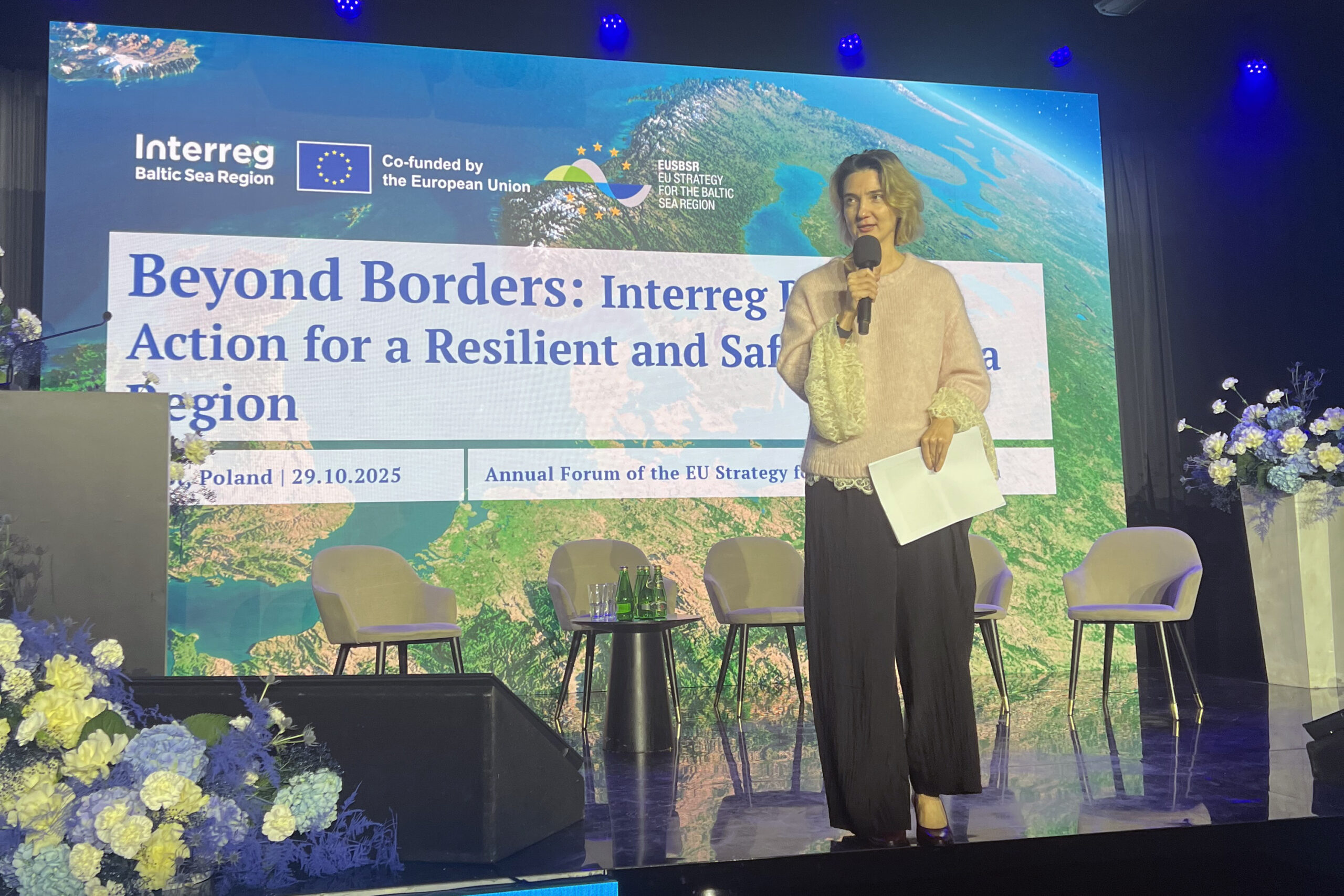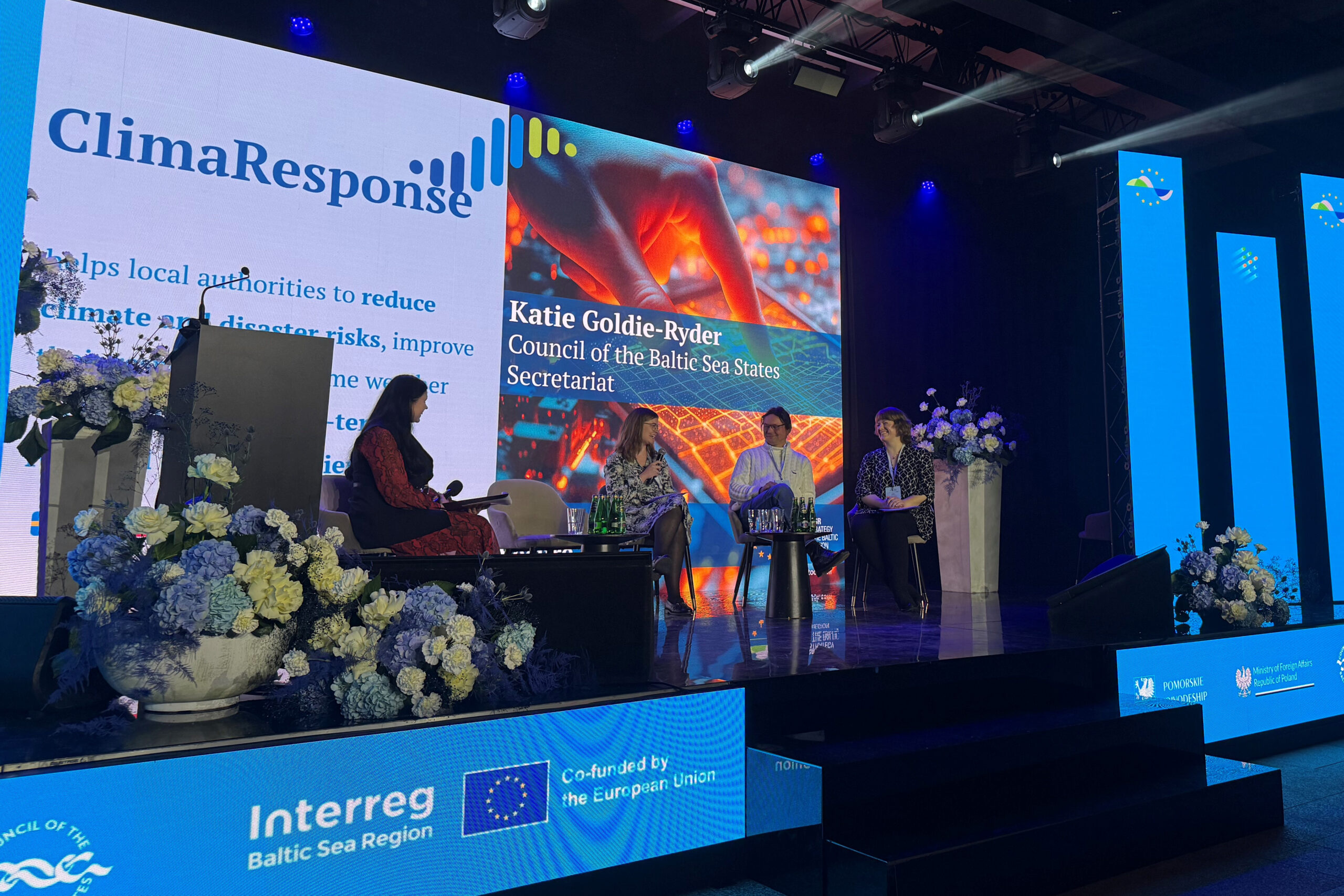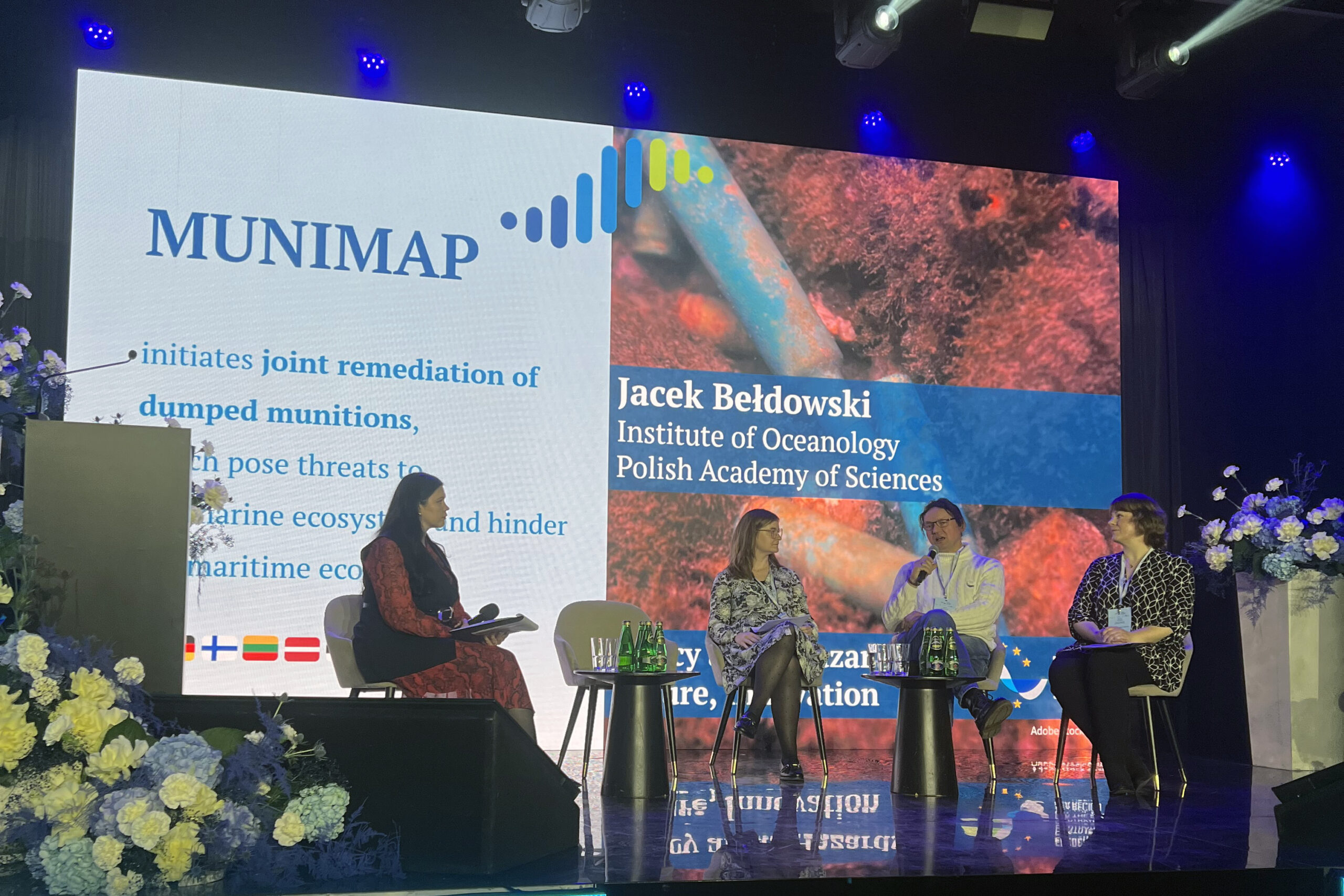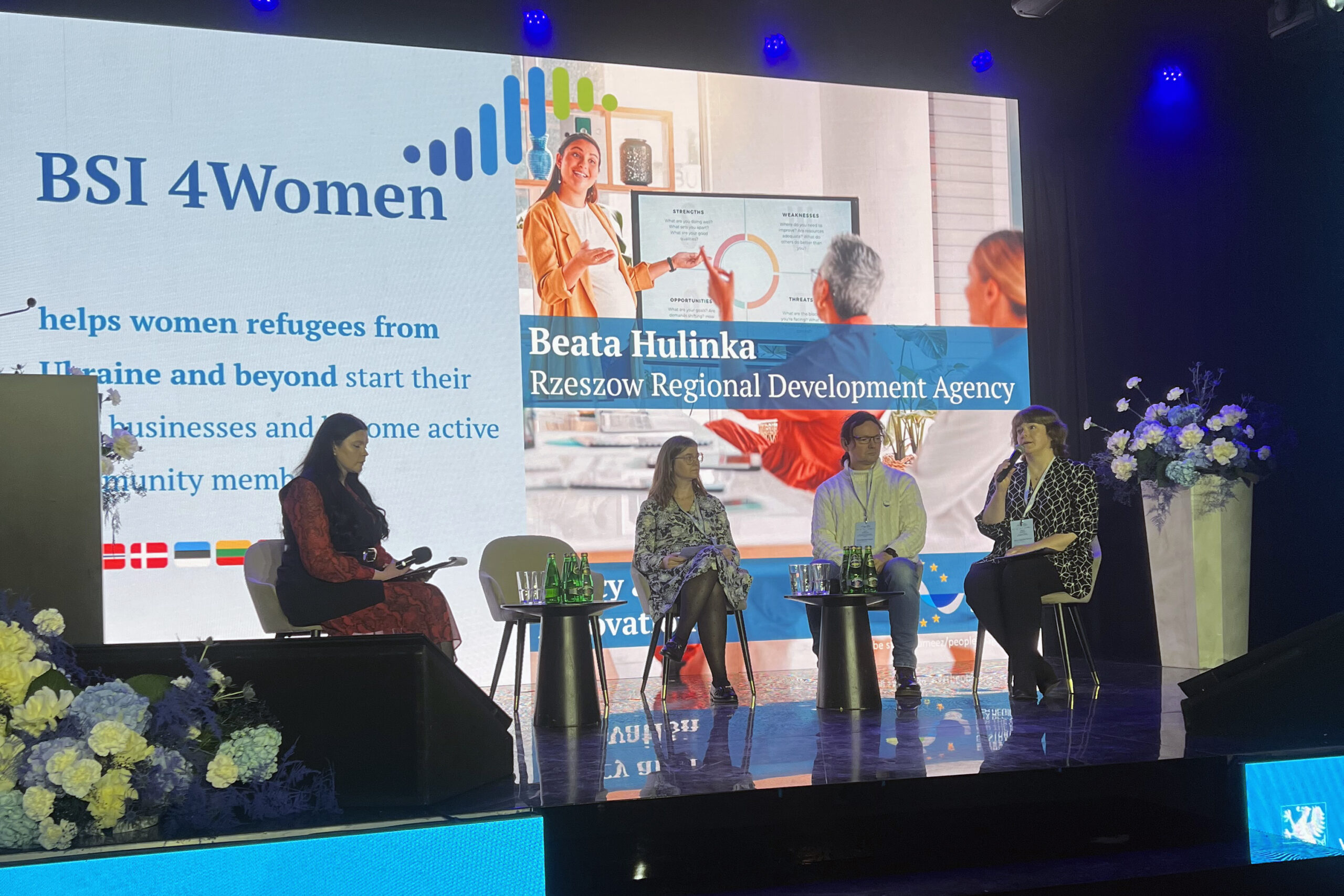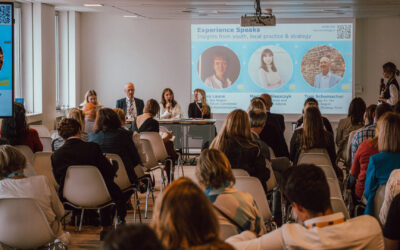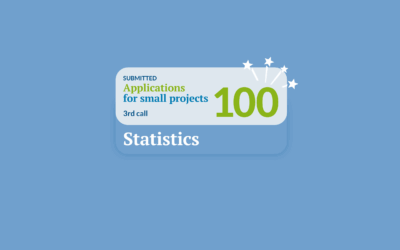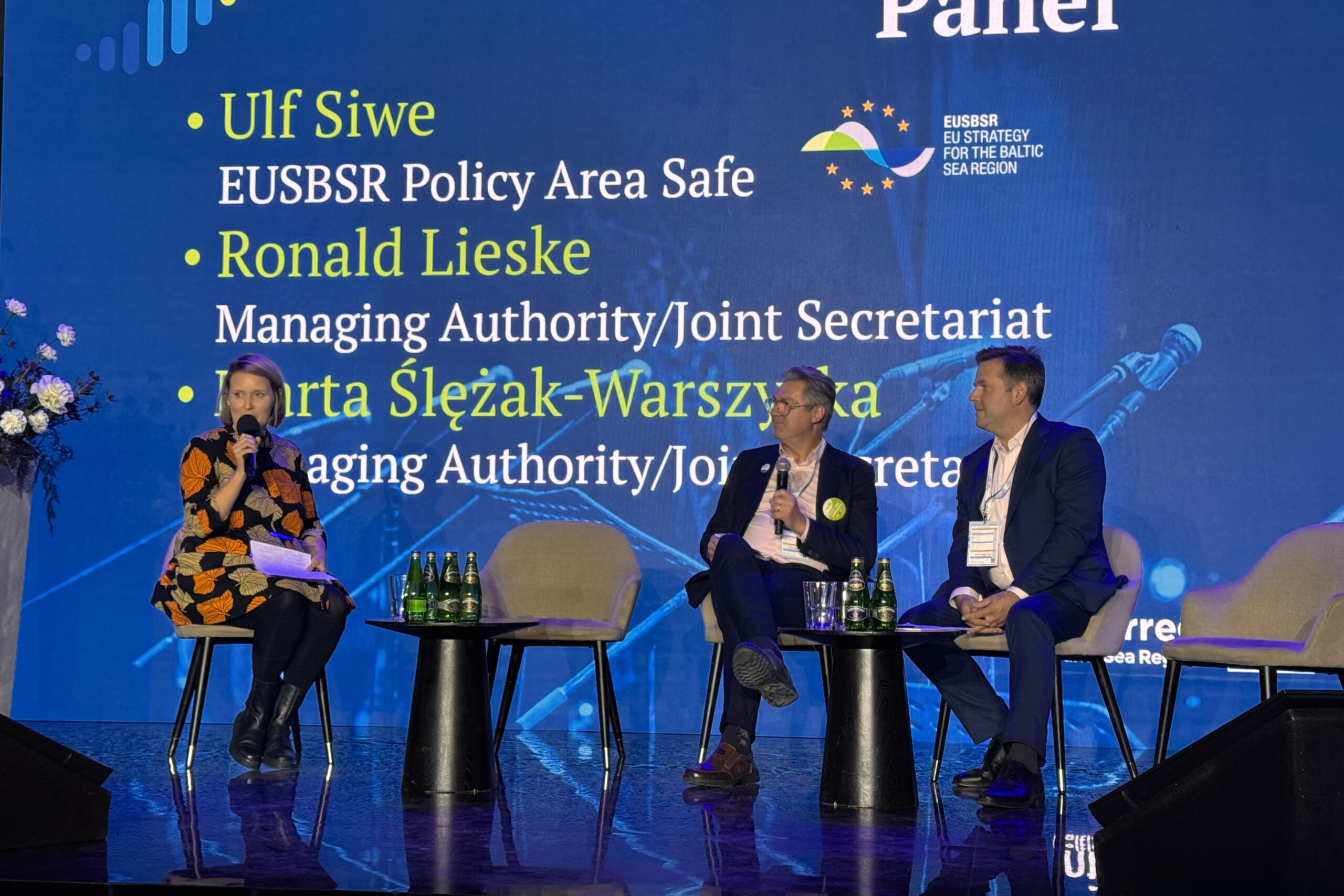
4 November 2025
Beyond Borders: Turning Interreg Results into Policy Action
Written by Ekaterina Latysheva
At this year’s EUSBSR Annual Forum in Sopot, the session “Beyond Borders: Interreg Results in Action for a Resilient and Safe Baltic Sea Region” showcased how Interreg Baltic Sea Region projects are transforming challenges into policy-relevant results that strengthen resilience, safety, and cooperation across the region. The session brought together project partners, EUSBSR policy area coordinators, members of the Programme Monitoring Committee and young participants to explore what it takes to turn project outcomes into lasting policy impact.
From Ideas to Impact: The Interreg Kaleidoscope
The session opened with a series of inspiring project pitches that reflected the diversity of Interreg cooperation.
BSI_4Women, presented by Beata Hulinka from the Rzeszow Regional Development Agency, focuses on empowering refugee women to start their own businesses and become active community members. The approach has already sparked interest among support organisations eager to adopt the tools. Still, Beata reminded the audience that, “Policy change takes time – awareness doesn’t immediately turn into action.”
MUNIMAP, introduced by Jacek Bełdowski from the Institute of Oceanology of the Polish Academy of Sciences, addressed the long-neglected problem of dumped munitions in the Baltic Sea. “Everyone agrees this work is crucial,” Jacek said, “but gathering all the right policymakers around one table remains a challenge.”
ClimaResponse, presented by Katie Goldie-Ryder from the Council of the Baltic Sea States Secretariat, helps municipalities build climate resilience. With six pilot municipalities testing an interactive digital platform, the project will provide practical tools for local adaptation and disaster preparedness. “We’re helping cities make resilience part of everyday governance, not just a reaction to crisis,” Katie emphasised.
From Discussion to Policy Reflection
In the policy reflection, Ulf Siwe, coordinator of the EUSBSR Policy Area Safe, underlined that achieving policy impact requires continuity and patience. “To create real policy impact, projects must form part of a longer journey. Building on previous results ensures continuity, avoids duplication, and strengthens credibility,” he noted. Cooperation must extend across sectors, policy areas, and governance levels to produce lasting change.
Click the picture to open the gallery
Co-creating the Path: The Project-to-Policy Lab
During the interactive Project-to-Policy Lab, participants worked in small groups to design practical pathways for taking project results to policymakers’ desks. Their discussions revealed that for project results to genuinely reach and influence the policy level, several interconnected conditions need to be in place. Projects should have:
- a clear and realistic action plan showing tangible benefit for decision-makers, communicated early and effectively, ideally through short and visually engaging policy briefs;
- policy-makers involved from the very beginning, even during project preparation, to ensure ownership and relevance;
- more opportunities for direct dialogue and networking at the EUSBSR level;
- communication of results in a practical way, demonstrating real-life effectiveness through pilots;
- flexibility to adapt to emerging policy needs; and
- stronger regional structures and frameworks that help transfer knowledge across countries and sectors.
As one group concluded: “The right document must land on the right table at the right time.”
A Shared Vision for the Baltic Sea Region
The session concluded with a shared understanding that Interreg results are ready for policy, but lasting impact requires closer cooperation, continuity, and courage to bridge the gap between projects and policymaking.
As Ronald Lieske from the Programme Managing Authority/Joint Secretariat summed up, the Programme has come a long way in turning cooperation into real policy value. He underlined that Interreg Baltic Sea Region should continue to be a place where project results become policy in practice. This means ensuring that when a project lands in the Programme, it also lands in policy, with the support of regional frameworks such as the EU Strategy for the Baltic Sea Region.
#DidYouKnow
- All Interreg Baltic Sea Region projects contribute to implementing the EU Strategy for the Baltic Sea Region (EUSBSR).
- With over €212 million in EU funding, 115 projects turn cooperation results into practical tools and policy inputs.
- Interreg acts as a bridge between projects and policy, helping regional and local solutions reach the desks of decision-makers.
Learn more about our projects and their contribution to the EUSBSR in our project library!
Don’t miss these links
More recent news
Designing Interreg Baltic Sea Region that belongs to everyone
10 December 2025 Designing Interreg Baltic Sea Region that belongs to everyone Written by Eeva Rantama What if the next Interreg Baltic Sea Region...
Monitoring the Programme’s progress: transnational cooperation in the making
Representatives from nine Programme area countries gathered in Berlin on 19-20 November 2025 to review the progress of the Programme’s implementation and start preparing for the post-2027 period.
How territorial cooperation builds us a home: the Baltic Sea region example
A room full of people waving their green and orange cards, prominent panelists on stage, and a clear hero of the day: territorial cooperation, making the Baltic Sea region feel like home. The joint session during this year’s EU Week of Regions and Cities was filled with positive energy, commitment and hopes for the future. What stood out most?
100 project applications: small enough to handle, big enough to matter!
The third call for small projects closed with 100 submitted applications and a whole lot of ambition. From existing challenges to transnational answers, these initiatives are proving that small can be mighty in the Baltic Sea region.



